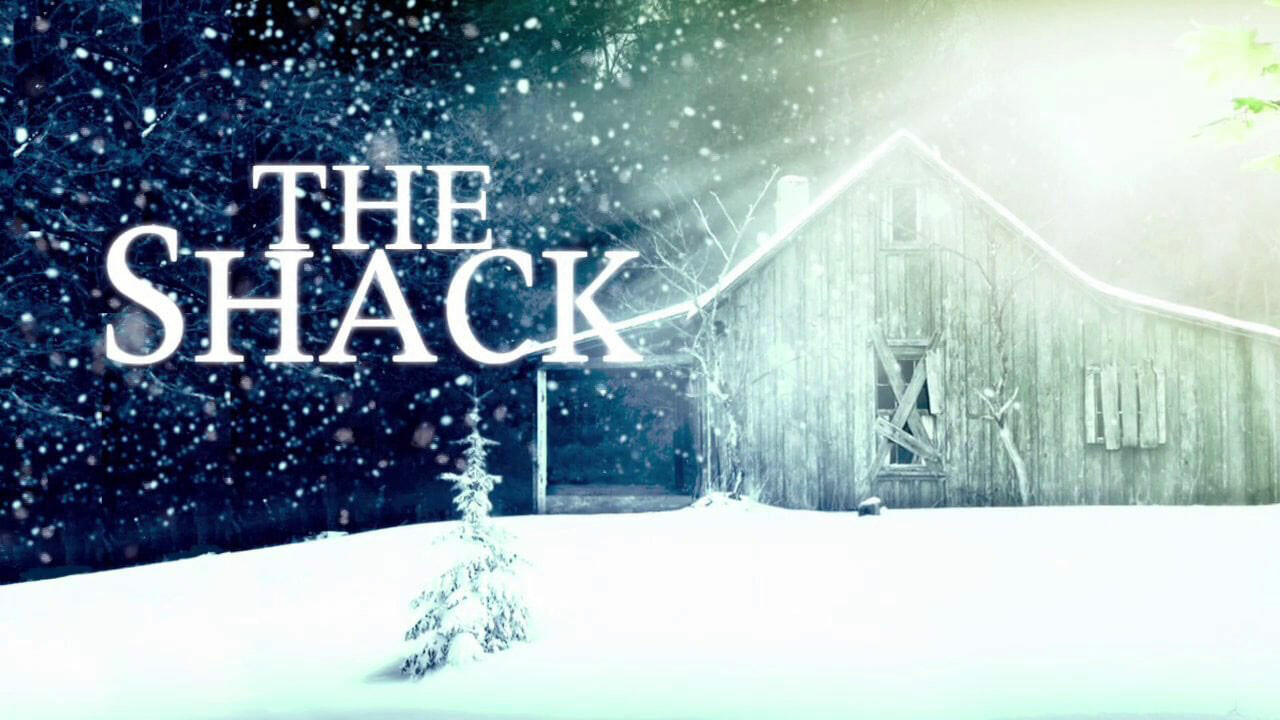The Shack: Movie Review

Yep, I read the book years ago. Now I’ve seen the movie. Twice. I knew people would ask me about it so I felt compelled to go see it.
I’m tempted to get really analytical and dissect all of the scenes and the dialogue down to the minutest detail...I’m wired that way. But I’m going to resist that temptation because I really do want you to read this blog and it would likely be ten pages long if I did that.
So...I will restrain myself and just offer several of my general impressions.
You’ll see that my perspective on the movie is rather mixed. I felt there were some things to appreciate as well as things that were off-putting to me.
OK, here we go. I’ll start with a few cautions...
If you want to go see The Shack, go see it...just don’t base your theology on it
As Christians who desire to follow Jesus we should form our views on God, mankind, life, sin, salvation, and eternity from our careful study of God’s Word, not from movies.
Sure, there’s a lot in this movie to appreciate—I’ll get to that in a minute—but there are also some things that should prompt us to think... “Well, nice try, but that depiction or that dialogue doesn’t really square with scripture.” The Bible is the standard by which we rightly ought to measure all the input we receive, and there is plenty in The Shack that should give us pause.
Certain portrayals are hard for me and others to get past.
Like many, it was difficult for me to abide the depiction of God the Father as a woman (well-acted though her part was). Scripture uniformly portrays our God as “Father” of His creation and His children. He is “Abba”... Daddy... Father. Yes, I know that our Lord possesses some qualities that are more readily associated with moms. Yes, I saw that the female “Papa” shape-shifts into a father-figure during a very moving scene later on in the movie, but my theological senses were already put on alert. I couldn’t get past it.
If felt fairly man-centered to me.
I’m a “Big God” theology guy. I’m a “God-centered gospel” guy. I believe that God is essentially God-centered, not man-centered (which in no way diminishes His incredible love for us. In fact, it’s a necessary part of it). The way The Shack storyline unfolded left me feeling uneasy about this. Papa’s comment to Mac—“YOU are in the center of our love and purpose”—made me cringe a bit. Maybe you agree with me, maybe not. It’s just the sense I came away with.
The Biblical gospel is hinted at and nipped around the edges, but missed at it’s core.
Yes, Jesus’ death is referenced and affirmed. Yes, it seemed to be viewed by the Trinity as the ultimate expression of love for mankind. What was missing (except in the hymns being sung in the church scenes) was a clear emphasis on Christ’s sacrifice as penal substitutionary atonement for human sin--as absorbing the just wrath of a righteous God in our place. In fact, the Papa figure in the movie pretty much dismissed “wrath” from his/her self-description (“Wrath? Sin is it’s own punishment”), in effect saying that the painful consequences of human sin IS IN ITSELF sufficient punishment. That doesn’t square with scripture.
To me, what got conveyed regarding the meaning of Jesus death is kind of like that old chorus, “For Those Tears I Died”—depicting the cross as necessary for rescuing people from the hurts and injustices they’ve experienced in their lives and enabling them to have hope in an eternity where all wrongs will finally be righted. And while these benefits are certainly true, this representation misses the bullseye of what Jesus’ death was really all about—satisfying the holy justice of God; taking the wrath we deserved.
It smacks of the growing tide of “universalism” that many are embracing.
Are we all children of God? Will everyone end up in heaven no matter what path they took to try and reach God? The movie seems to answer in the affirmative.
While the main character does have an awakening experience of the realities of God and eternity, there is no clear conversion experience or call to trust in the atoning sacrifice of Jesus as the only way of salvation--only a call to stop playing God. In fact, it is at the moment when Mac finally lets go of his chronic judgmentalism that his eyes are first opened to the reality of eternity. What is that? Salvation?
No, I didn’t go into the movie expecting a clear gospel call, so I wasn’t deflated by this. But as Christians attend this movie and are moved by it’s story, I believe we should keep in mind that it bends towards universalism. I think this could be a great conversation point as we discuss the storyline with co-workers, family, and friends.
All that said, there was also a lot to like in The Shack movie.
I appreciated certain emphases that were made very plain and I believe can have spiritual benefit to discerning people...
Addressing the problem of pain and evil. Certainly the attempt to grapple with the age-old conundrum of the existence of unspeakable evil in a world created by a good God is admirable—it tackles this head-on. It attempts to “resolve” the tension by depicting the reality of eternity, something the Bible affirms again and again.
The existence of The Trinity and the relational nature of God. In addition, although it certainly falls short, the movie does seek to illuminate the reality that God exists in three distinct Persons--the historic Christian doctrine of The Trinity. In a very poignant way it conveys the truth that God is not only a relational being—even within Himself—but also seeks to draw humans into that relationship... a clear swipe at just being “religious” for religion’s sake.
The reality of hardship. I was struck by the clear acknowledgement that God, although loving and good, never promised us humans a pain-free life. Thus we shouldn’t expect to have one, but rather trust that God will work through our pain to refine us and restore us to Himself.
The power of forgiveness. I also appreciated the emphasis on the impact of forgiveness--extended even to those who have wounded us or those we love deeply--as essential for living a healthy, God-pleasing life (although the male Papa simply urging Mac to mouth the words “I forgive you” falls far short of what we know to be the gospel incentive for forgiving others).
The folly of “playing God.” I was grateful that the movie pointed out the prevalent human tendency to try and usurp God’s throne, question His decisions, and sit in judgment on His activity. The riventing scene where Mac encounters “Wisdom” in the cave showed in a masterful way just how untenable this position is. Only God is qualified to be God.
The value of relationships and community. I loved how the movie showed Mac’s good neighbor buddy walking with Mac through life, not shying away from a man in deep pain, being there for him as a sounding board, an understanding listener, a spiritual partner, and a good friend. Scripture and experience tell us that undergoing a season of sadness is not the time to run away from community, but rather to press in more deeply.
The importance and challenge of being a dad. I am a father, and the movie struck a chord deep within my soul. I was on vacation when I saw it and after leaving the theater I took a long walk down a moonlit beach, and experienced a prayer time for my kids unlike any I’ve ever had before. Something about the storyline triggered an intense emotional response in me that made me want to reach upward to my heavenly Father on their behalf. I think I poured my heart out to God for two hours. It was a sweet and memorable time. Dads are important!
Well, there’s a lot more I could say but I’ll stop there. If you’re so inclined I’d say go ahead and see the movie while keeping your theologal lenses firmly in place. If you’re a newer Christian or not yet very mature in the faith, I’d encourage you to see it with a fellow believer and pepper them with questions afterwards.
And for all of us, let’s be ready to engage in conversation with people we know who saw the movie and have questions. If we’re prepared for it, God could use us to show them the way—the true and biblical way—to find peace and relationship with God.
Thanks for reading!

